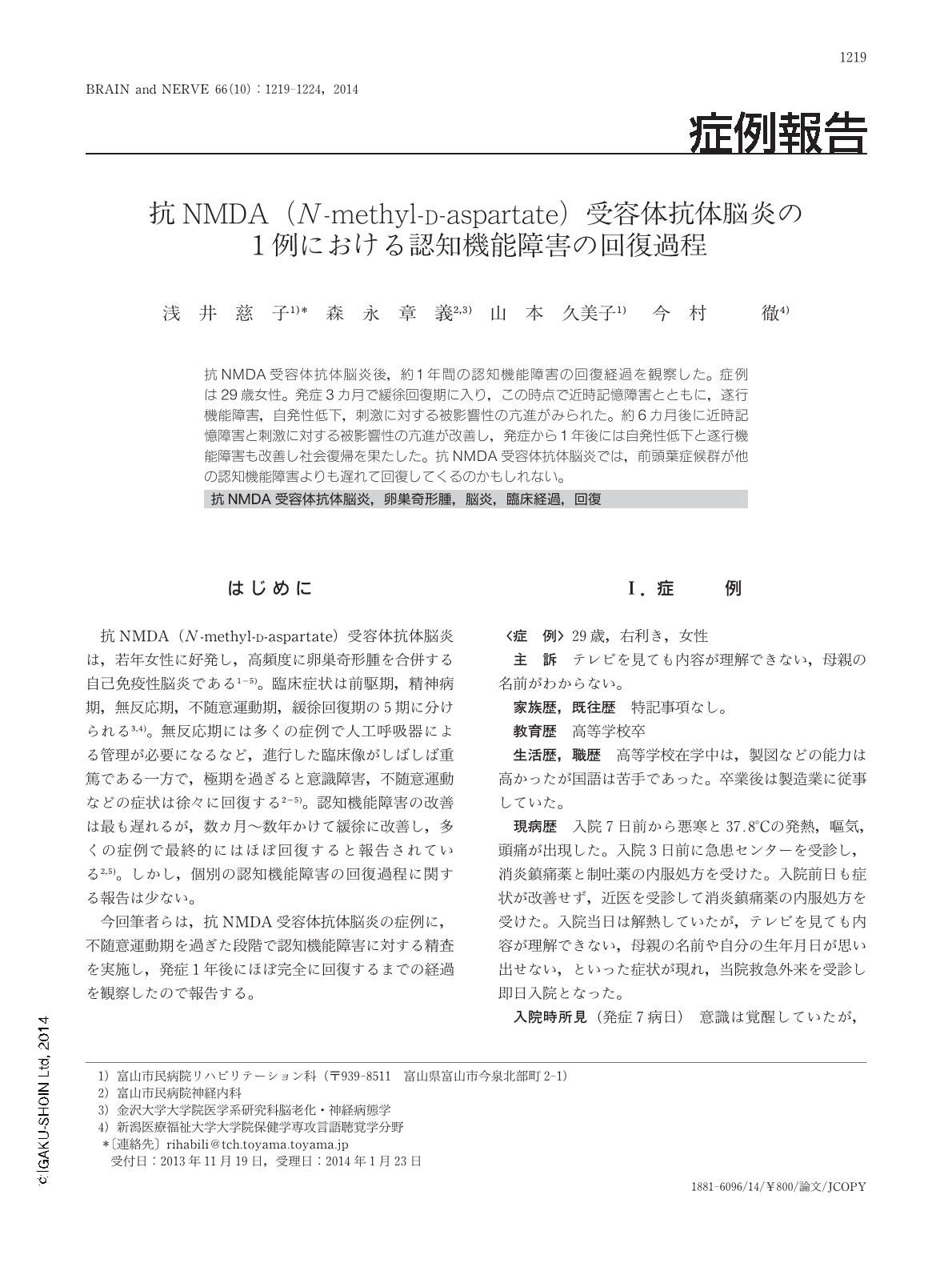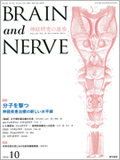Japanese
English
- 有料閲覧
- Abstract 文献概要
- 1ページ目 Look Inside
- 参考文献 Reference
抗NMDA受容体抗体脳炎後,約1年間の認知機能障害の回復経過を観察した。症例は29歳女性。発症3カ月で緩徐回復期に入り,この時点で近時記憶障害とともに,遂行機能障害,自発性低下,刺激に対する被影響性の亢進がみられた。約6カ月後に近時記憶障害と刺激に対する被影響性の亢進が改善し,発症から1年後には自発性低下と遂行機能障害も改善し社会復帰を果たした。抗NMDA受容体抗体脳炎では,前頭葉症候群が他の認知機能障害よりも遅れて回復してくるのかもしれない。
Abstract
Anti-N-methyl-D-aspartate (NMDA) receptor encephalitis is an autoimmune disorder, which occurs commonly in young women and is often associated with ovarian teratomas. We report the case of a patient with this disease, who exhibited cognitive deficits, and describe the clinical course of recovery from cognitive dysfunction. A 29-year-old right-handed woman suffered from chills and fever for 7 days prior to admission to hospital, and complained that she could not understand the content of TV programs. Following admission to hospital, she was found to have an ovarian teratoma and underwent oophorectomy. She was diagnosed with anti-NMDA receptor encephalitis based on the presence of antibodies in the serum and cerebrospinal fluid. She subsequently experienced phases with disturbance of consciousness and involuntary movement, and then moved into the gradual recovery phase 3 months after onset. Cerebral SPECT revealed a left-dominant decrease of blood flow in the prefrontal regions bilaterally. Neuropsychological examination 3 months after onset revealed frontal lobe syndrome comprising executive dysfunction, decreased spontaneity, and environmental dependency in addition to recent memory deficits. Approximately 6 months after onset, recent memory impairments and environmental dependency were resolved, and a gradual improvement in spontaneity and executive function was seen. One year after onset, the patient had regained independence and ability to self-care, and returned to her workplace. Our observations suggest that patients with anti-NMDA receptor encephalitis may recover from frontal lobe syndrome, including executive dysfunction and decreased spontaneity, slower than patients with other cognitive dysfunctions do.
(Received November 19, 2013; Accepted January 23, 2014; Published October 1, 2014)

Copyright © 2014, Igaku-Shoin Ltd. All rights reserved.


